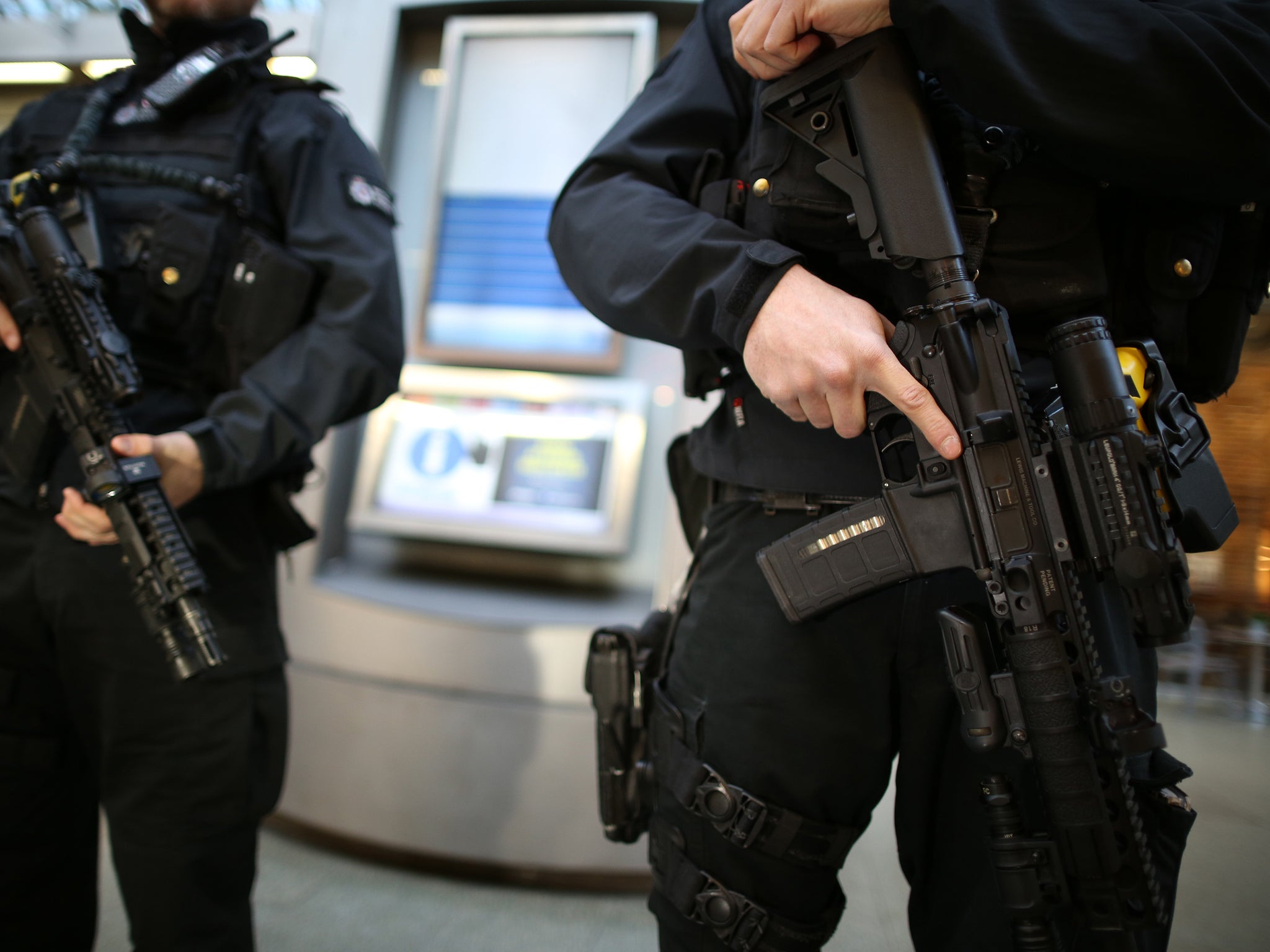Police and security services need the necessary tools to keep us safe – but human rights must be respected too
As a new parliamentary bill over ‘undercover agents’ is introduced, Labour will put the public’s safety first


Your support helps us to tell the story
From reproductive rights to climate change to Big Tech, The Independent is on the ground when the story is developing. Whether it's investigating the financials of Elon Musk's pro-Trump PAC or producing our latest documentary, 'The A Word', which shines a light on the American women fighting for reproductive rights, we know how important it is to parse out the facts from the messaging.
At such a critical moment in US history, we need reporters on the ground. Your donation allows us to keep sending journalists to speak to both sides of the story.
The Independent is trusted by Americans across the entire political spectrum. And unlike many other quality news outlets, we choose not to lock Americans out of our reporting and analysis with paywalls. We believe quality journalism should be available to everyone, paid for by those who can afford it.
Your support makes all the difference.Keir Starmer couldn’t have been clearer: security is the top priority for Labour under his leadership.
A key element of this must be ensuring that our police and security services have the necessary tools they need to keep us safe, whilst ensuring that we respect human rights and the rule of law.
Next week, a bill comes before parliament that seeks to put on a statutory footing the activity of “covert human intelligence sources” – undercover agents – who are working to disrupt some of the most vile crimes imaginable, including terrorism, violent drug gangs, serious and organised crime and child sexual exploitation.
It is a grim fact of life that these criminal networks exist. In fact, their activity has increased over recent years, partly driven by huge Tory cuts to the police and facilitated by technological development.
As a result, it is vital that our security services are able to get access to these gangs, in order to disrupt this activity, prevent further crime and bring people to justice.
Since March 2017, MI5 and Counter Terror Police have together thwarted 27 terror attacks. In 2018, covert human intelligence sources helped disrupt over 30 threats to life, arrest numerous serious organised criminals, seize over 3000kg of Class A drugs, and took more than 50 firearms off the street.
In the course of these operations, it is inevitable that to maintain cover, covert human intelligence sources will at times need to transgress existing laws. For example, a source in a proscribed organisation would be committing a crime every day by being a member of it; those infiltrating a violent gang could be expected to source firearms; those seeking to disrupt a terror plot may well need to be involved in its planning and development in order to stop it. This is highly disturbing and highly dangerous for the covert human intelligence source, but necessary to keep people safe.
Under the legislation, these covert human intelligence sources would not be given a “blank cheque”. Instead, each instance of law breaking would be specific and need approval, while our law enforcement agencies will be held accountable for the proportionate and necessary use of the power.
Such activity – the licence to commit a crime to prevent something far more serious occurring - has been happening for many years, but it has not been properly legislated for. This cannot be right, both for the public and the security services we charge with keeping us safe. This activity should be on a statutory footing. That’s why we accept the need for this bill and believe it should be allowed to progress to Committee Stage in the Commons.
It is vital that any legislation relating to the work of our security services does two things: maintains public confidence and protects those putting themselves in harm’s way to keep the rest of us safe. This necessitates very clear limits and oversight. In its current form, I fear the legislation does not provide this. Labour will be pressing the government on robust safeguards.
For example, the use of these powers will be overseen by the Independent Investigatory Powers Commissioner who can report on an annual basis, but I believe that it needs more than this: each and every authorisation should be notified to the commissioner in real time, so scrutiny can be robust and ongoing. Furthermore, the government needs to be far more explicit on the ways that vital Human Rights protections will be central to the day-to-day operation of the provisions in this bill.
There are other critically important issues, too. For instance, the bill should not retrospectively apply to legacy issues relating to the Northern Ireland Troubles. Where there are any allegations of historic injustices involving our law enforcement and security services, justice must take its course.
Also, the inquiry into relationships undercover officers entered in to with civilians, which were revealed through the so-called “spy cops” scandal, must continue. The hearings open in November and I will be following its progress closely, to see what recommendations emerge and how they can be implemented.
So as we approach this bill, and press the government on vital safeguards, we will put the public’s safety first as part of our commitment to Labour’s role in keeping individuals, families and our country safe.
Nick Thomas-Symonds is the shadow home secretary and Welsh Labour MP for Torfaen


Join our commenting forum
Join thought-provoking conversations, follow other Independent readers and see their replies
Comments